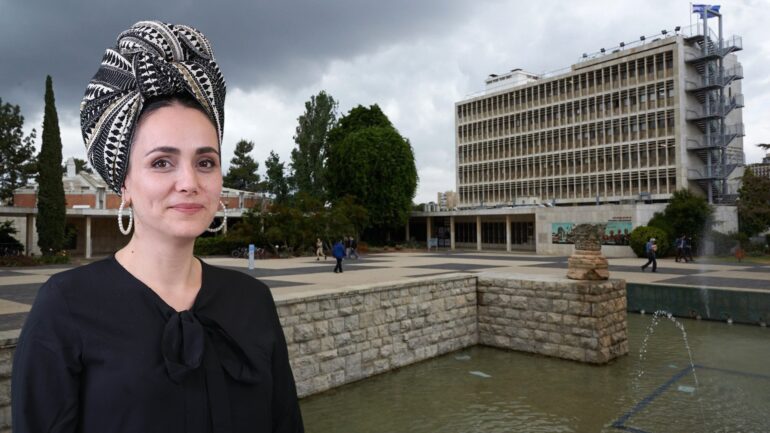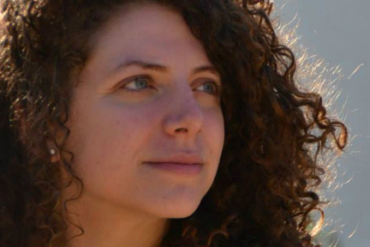The Knesset announced on Wednesday that a proposed bill seeking to allow separate academic tracks for men and women in most Israeli higher education institutions passed a preliminary parliamentary reading.
According to the statement, the bill seeks to amend the 2007 Student Rights Law, which stipulates that separate academic tracks for men and women for “religious” reasons should not be considered discrimination.
Member of Knesset Limor Son Har-Melekh (Otzma Yehudit) proposed the bill and received support from 55 lawmakers and from 45.
While opposition lawmakers like Merav Michaeli (Labor) and Merav Ben-Ari (Yesh Atid) have vaguely attempted to frame the bill as somehow harmful to women, their arguments come across as hysterical and detached from what the scientific data has shown.
Many studies have proven that women perform better in all female academic environments than in coed settings. Some have further shown that students at women’s colleges feel a greater degree of support and that they gain more from the overall college experience. Retention among female students is stronger (fewer dropouts) than in coed academic environments and they complete their degrees at a higher rate.
Even at the high school level, research shows that graduates of girls schools are more oriented towards the sciences and more likely to be politically active and engaged in their communities than female graduates of coed schools.
Furthermore, because a sizable percentage of Israeli women (and men) are less culturally comfortable attending coed institutions, the option for separate gender tracks would allow greater access for Israeli women to higher education across the board.
So what is the opposition crying about?
Aside from simply looking to incite the public against the coalition (as usual), the deeper issue these opposition lawmakers have with Har-Melekh’s bill is how it could influence the nature of Israeli society.
Our westernized ruling class and their politicians in the opposition oppose any expression of Jewish values or societal norms in Israel’s public space whenever said values or norms differ from those of the liberal West. This was clearly demonstrated by Michaeli’s tweet on X accusing Har-Melekh’s bill of furthering the State of Israel’s transition towards something resembling Iran.
Far from championing the advancement of women, Michaeli and the elites she represents would actually prefer to block non-westernized Israeli women from receiving a college education than to accommodate their cultural needs and traditional values. Continuing to deny hundreds of thousands of women access to higher education unless they compromise their values and identity is actually a great example of how white girl feminism contributes to the oppression of Israeli women.
To her credit, Limor Son Har-Melekh expressed deep understanding of this issue’s true nature.
“The uniform structure of Israel’s higher education system does not always suit the complex reality of Israeli society in all its diversity,” she said.
“On the ground, we see populations forced to remain outside the system simply because it does not accommodate them.”
“This is not about coercion or restriction but about expanding the range of choices” she added.
“The proposal is open to anyone who wishes to benefit from it and will allow higher education to become accessible to additional populations.”
It’s also important to appreciate the relevancy of this issue to another hot topic in Israel today – that of Ḥaredi enlistment in our army.
It’s obviously right that Ḥaredi men begin to serve in Israeli’s military and cary their share of the national burden – especially given the facts that they have a Torah obligation to do so and we’ve been at war for over a year. But if those fighting for Ḥaredi enlistment are serious (and not merely trying to destabilize the coalition), they must understand that the best argument Ḥaredi leaders have against their young men joining the army is that it would negatively impact their identities and weaken their commitments to the traditional Jewish values and cultural norms of their communities.
There is therefore a need for our military to make significant adjustments and compromises to accommodate the needs of not only the individual Ḥaredi soldier but also of the collective community he represents.
The same holds true for our academic institutions. If we want Israel’s less westernized sectors to become more educated and productive members of society, they shouldn’t feel that receiving a higher education comes at the expense of what’s most important to them.
Neither military service nor higher education should be weaponized by Israel’s ruling class to westernize the nation’s fastest growing sectors. Our elites – along with their allies in the parliamentary opposition, Supreme Court, and media establishment – need to come to terms with the fact that Israeli society is changing and that trying to maintain a strong Western national character by force will only lead to the oppression of certain groups, exacerbate tensions between Israel’s tribes, and weaken our social fabric in a way we cannot afford.





